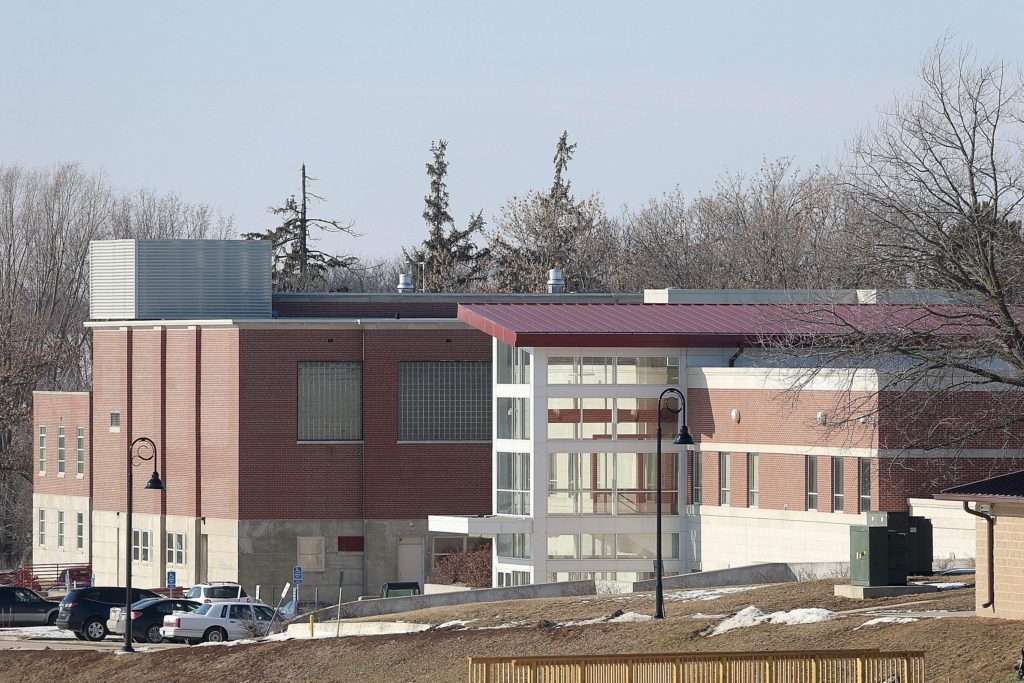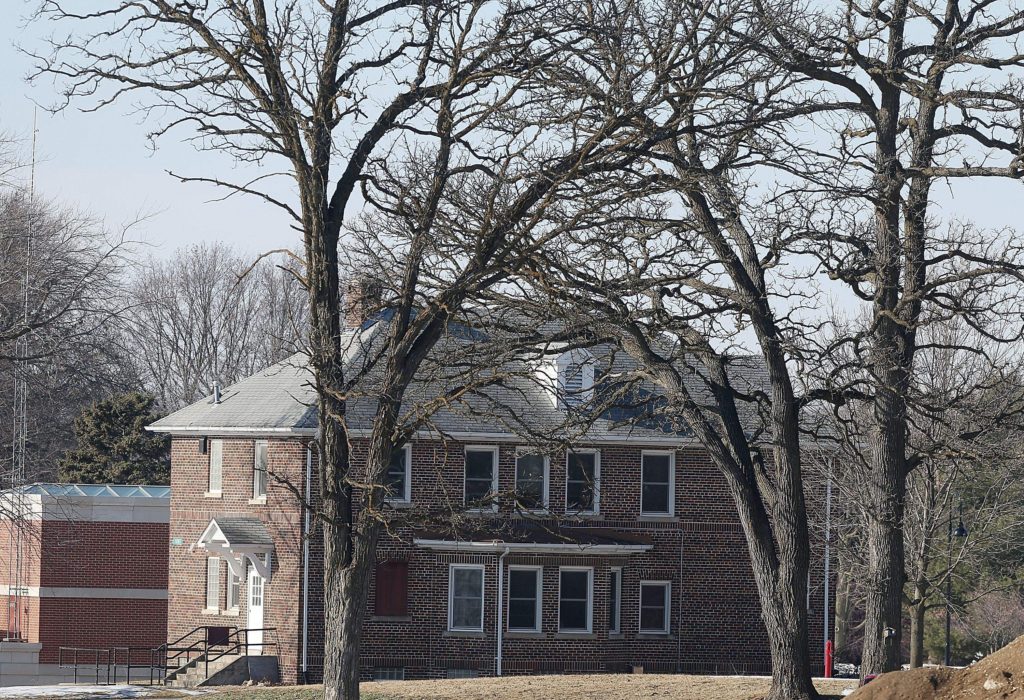About midway through May, a moving van and trailer arrived at Toledo’s now shuttered Iowa Juvenile Home.
According to the Iowa Department of Human Services, furniture, appliances (including older computers) and records were removed from the site and relocated to other state-run facilities.
Area residents and former facility workers who had purchased flags in honor of loved ones or donated to the Iowa Juvenile Home Foundation to provide specialized materials for the school library, worried these items and other historical artifacts had been removed from the site. A DHS spokeswoman says while the future of these items are discussed, they remain at the Toledo facility.
But the move, hit-and-miss property upkeep and near constant presence of highway patrol officers in the parking lot have done little to alleviate the worry of those who believe Gov. Terry Branstad and his administration aren’t waiting on a final decision from Iowa Supreme Court on whether or not the executive branch had the unilateral authority to close the facility.

Their concerns aren’t without warrant.
Shortly after exercising a line-item veto to stop GOP-backed funding for the last few maintenance workers, Branstad said he may order the demolition of residential cottages, indicating the facilities “are not appropriate”and in “bad shape.”
“I think all options should be looked at,” Branstad said during a June 2 news conference. “We need to do what’s in the best interest of the community, and I want to make sure that asset is made available to the community in a way that would help economic development and growth in the Tama County area.”

Now that those pesky kids are out of the way, it certainly sounds like Branstad is considering new uses for the 27-acre property.
Branstad has said throughout the discussions, and in contradiction to the findings of his own investigative task force, that privately run facilities are capable of caring for delinquent young women thought to be a danger to themselves or others.
Just this week, a 14-year-old Cedar Rapids girl proved him wrong. The girl used a cord to choke a staff member at the Independence Four Oaks campus. She also pushed, punched and threatened staff members with scissors. The girl, who previously attacked her mother with a screwdriver and is now facing attempted murder and other charges, has been through 10 years of private options. Four Oaks has said that “given the serious nature of the child’s attack,” the girl can no longer be treated at the facility.
It was usually at this point, when all other options failed, that a juvenile would be sent to Toledo (in lieu of entering the adult correctional system).
If the intent is to move all delinquent juvenile behavioral health services into the hands of private contractors — and given the court’s record regarding Branstad’s closure of Iowa Workforce Development Offices, it is doubtful IJH will be ordered reopened even if he acted illegally — the public has a right to know the limits of private offerings. The public also needs to understand and consent to what will happen to juveniles who exhaust all available private mental health options.

This column by Lynda Waddington originally published in The Gazette on June 7, 2014. Photo credit: Adam Wesley/The Gazette
